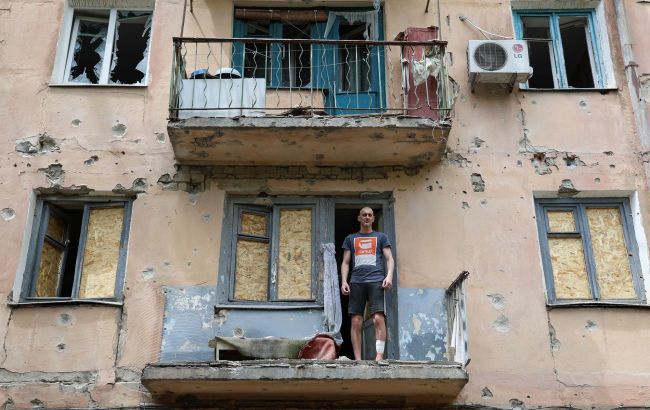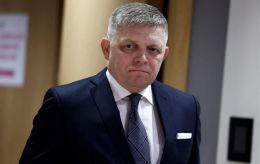Russian-speaking Ukrainians suffer the most from Russian aggression - Center for Economic and Political Studies
 Photo: Russian-speaking Ukrainians have suffered the most from the war (Getty Images)
Photo: Russian-speaking Ukrainians have suffered the most from the war (Getty Images)
Most of the crimes were committed by Russia specifically against Russian-speaking Ukrainians. Because of this, they hate Russia and believe in the Armed Forces of Ukraine, states Mykhailo Mishchenko, Deputy Director of the Razumkov Center's sociological service.
According to the survey, 11% of Ukrainians primarily speak Russian in everyday life.
"It is precisely representatives of this group who suffered the most during their so-called ‘liberation from the junta,’" said Mishchenko.
Among them, 23% said that during the full-scale war they had lived for at least some time in areas of active combat or regions subjected to artillery shelling; 12% said their homes were damaged or completely destroyed. Additionally, 41% reported having relatives or close acquaintances (either military or civilian) who were killed or wounded as a result of military actions or shelling after February 24, 2022.
One in four was forced to leave their place of permanent residence for more than a month after the war began (17% have since returned home, while 7% remain in temporary housing in other regions of Ukraine) — not including those still abroad.
Another 2% said they left their homes after 2014 (following the occupation of Crimea and parts of the Donetsk region).
Lavrov's statement
Myshchenko recalled a statement made by Russian Foreign Minister Sergey Lavrov regarding the “protection of the Russian-speaking population of Ukraine”:
"On the territory of Ukraine, which lies outside the constitutional borders of the Russian Federation, millions of people speak Russian — it is their native language. Leaving them under the rule of a junta that has banned even speaking Russian — they haven’t yet banned thinking in it — would be a very serious crime indeed."
“As for ‘serious crimes,’ in this area, of course, Lavrov and his team are recognized experts and specialists,” Myshchenko noted.
Identity of Russian-speaking Ukrainians
According to a survey, 82% of Ukrainians who predominantly speak Russian in everyday life expressed a negative attitude toward Russia. At the same time, 81.5% of them trust the Armed Forces of Ukraine (AFU).
Among them, 11% identified as followers of the Ukrainian Orthodox Church of the Moscow Patriarchate, while nearly twice as many (20%) identified as faithful of the Orthodox Church of Ukraine.
In response to the question, "Which model of societal development seems more attractive to you?", 42% preferred the European model, while only 6% favored the Russian one.
A majority (55%) of this group believes in Ukraine’s victory in the war with Russia (33% do not believe in it). Only 40% believe a peace agreement between Ukraine and Russia could be signed in the near future (48% do not believe this is likely).
After Ukraine’s victory and the de-occupation of its territories, 47% of Russian-speaking Ukrainian citizens would support a complete severance of all ties with Russia, including a total ban on entry for Russian citizens into Ukraine (39% would not support this).
The survey was conducted by the sociological service of the Razumkov Center in cooperation with the Kyiv Security Forum from April 24 to May 4, 2025. A total of 2,021 respondents aged 18 and over were interviewed across all regions of Ukraine (excluding temporarily occupied territories).
In June 2024, 95% of respondents identified as ethnic Ukrainians, and 2% as ethnic Russians. Before the war, in 2021, 87% identified as Ukrainians and 9% as Russians.
Currently, 70.5% of respondents speak only or mostly Ukrainian at home — up from 50% in 2015 and 46% in 2006. Those who speak only or mostly Russian at home account for 11%, compared to 24% in 2015 and 38% in 2006.

